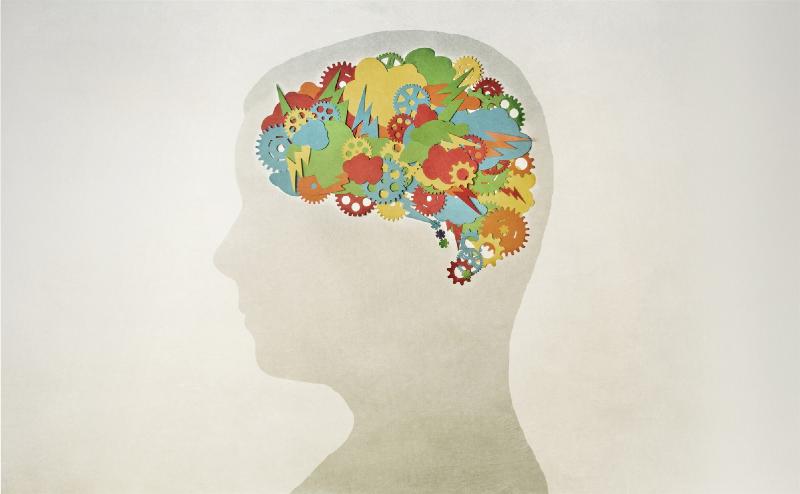Why some researchers say 'brain tingles' could be the next big trend in relaxation



Have you ever felt a static-like or tingling sensation on the top of your head when someone brushes your hair or whispers to you? The feeling may travel down your arms and your spine, and it likely makes you feel very relaxed. Some call it a “sparkly” feeling, and it might happen when you hear someone crinkle a piece of paper or when someone traces a word on your back.
The phenomenon is one that has captured the attention of psychologists and other researchers over the past decade or so. They’ve termed it “autonomous sensory meridian response” (or “ASMR”) , though some also refer to it as a “brain orgasm.”
“For me, my brain goes delightfully fuzzy. I’m so relaxed that I want to put my head down wherever I’m at,” says Craig Richard, PhD, professor of biopharmaceutical sciences at Shenandoah University in Winchester, Virginia, and author of a new book about ASMR, "Brain Tingles."
Researchers started paying attention to ASMR, Richard explains, in large part because of the boom of online videos of ASMR triggers — and the claims of those who watched them.
Many of the videos show someone whispering, lightly tapping on the camera or a microphone, stroking their hair, folding napkins or showing you a thimble collection. (To those who’ve never seen or heard about ASMR, they will likely seem odd.)
“It wasn't just that ASMR videos were popular,” Richard says. “Cat videos have always been popular too. But people kept posting comments online about how ASMR videos helped them to relax, de-stress, [and] fall asleep .”
And that included people who said they had been diagnosed with an anxiety disorder or insomnia, he says. Richard is also founder of ASMR University, an online resource to teach people about what ASMR is and the evidence behind it.
But there were obvious research questions here, Richard says. Is there something physiologically going on? What is happening? And is there a potential clinical use for it to help people with problems like insomnia, anxiety, depression, and chronic pain, as people anecdotally have reported it does?
“We’re trying to explain the basics of this,” he says — “and then how can this be applied as, perhaps, part of clinical treatments.”
THE SCIENCE SUGGESTS A ‘BRAIN TINGLE’ IS A PHYSIOLOGICAL RESPONSE
Unfortunately given how recently scientists started paying attention to ASMR, there’s still very little data published on it. But the findings so far suggest something is going on to trigger the response.
For one study, researchers used fMRI scanning to compare brain activity in people who report experiencing ASMR with people who don’t experience it. The work compared which brain cell networks were active in both the ASMR-experiencing group and the non-ASMR-experiencing group.
Everyone’s brains were in a resting state (as they were all lying still in the scanning machine when the imaging was done). And during rest, there tended to be weaker activity in what’s known as the “default mode” network (which is the one that becomes active when we’re daydreaming or disengaged from what’s happening around us) in the ASMR group.
“We don’t know exactly what’s going on while someone is experiencing ASMR tingles,” study co-author Stephen Smith, PhD, associate professor of psychology at the University of Winnipeg in Canada, tells NBC News BETTER.
But the takeaway from these is that the brains of people who are able to experience ASMR may be wired slightly differently than those who don’t experience it, he says.
Another study from Smith’s group suggests that it may even be that people who experience ASMR are more likely to have certain personality traits (like being open to new experiences and neuroticism) than those who can’t.
Read more at the seeded content


ASMR anyone? It's never happened to me, but it sure does sound nice. What do you think will be any applications medically?
I think this is where AI and virtual reality may come together. AI to provide the stimulus and VR to apply the environment. And we won't be wearing those clunky wired up scuba masks, home therapy will be as simple as putting on your Ray Bans or accessing the wireless implant you had installed.
Though interesting, never heard of it.
My mind travels with this article...I can see a point but, it's almost as though they are setting perimeters of their choosing rather than open it up to degrees of response. Kinda hard to define "tingle". I mean I understand what they are seeking but as varied as people are your tingle may not be the same as my tingle.
For instance, if I'm reading this correctly I get a tingle, truly, when I come home or even think of it because it's so tranquil and positive. I crave to be there. It's as though a familiar blanket was laid at my shoulders the sides of my head get stimulated just to the rear of my ears. The other was a whisper from one specific person in just the right accent...for a split second it's like your foot fell asleep all through your limbs.
2. TRY IT IN REAL-LIFE, TOO
This sounds more like foreplay than anything to do with the brain.... although the two are connected.